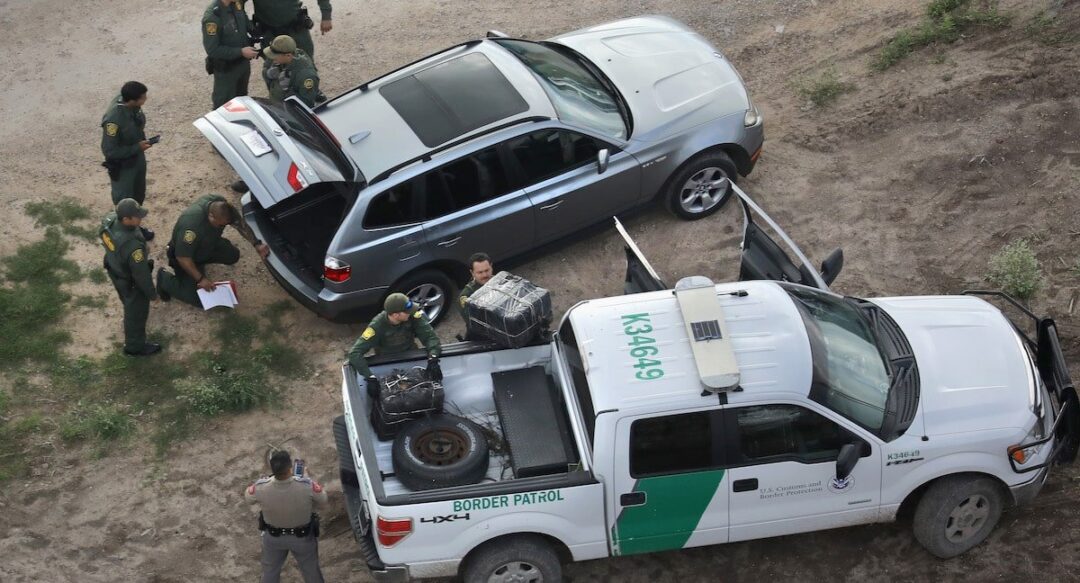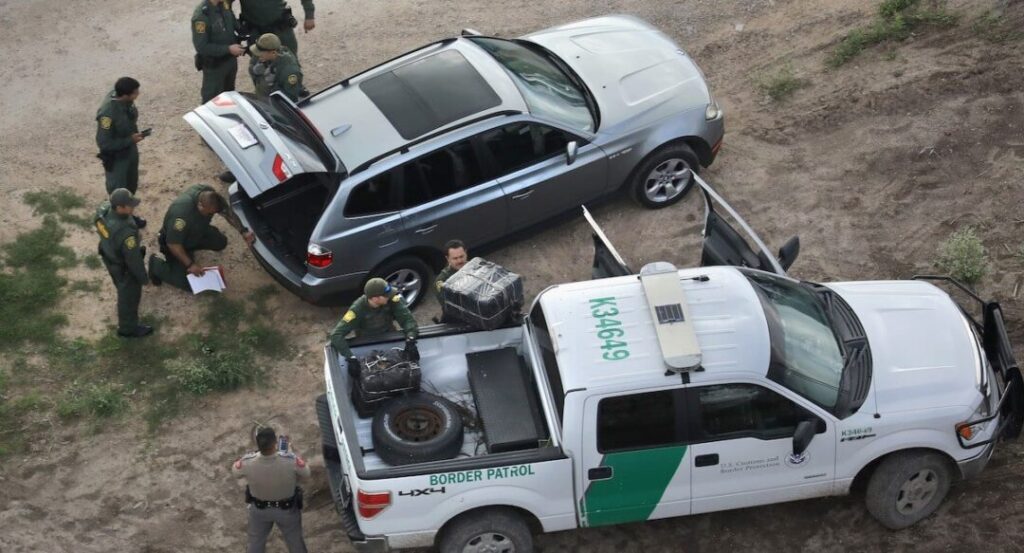The Role of Transnational Crimes in Border Security

Network of Networks. That is our world today. Integrated. Interconnected. Networks are made using land routes, sea routes, pipelines, submarine channels, internet and the like. Together, it leaves us a network of such networks that bring people and places from far away, closer. It sounds like a dream come true but it is not, because along with the benefits that come from these regulated networks, there is a dark side in which activities surpass all regulations and mechanisms through loopholes. Transnational crimes are acts that violate borders and laws, allowing money, commodities, humans, and data to travel across countries to be used for illegal gain. They not only impact individuals or groups of people victimised by the crime but the national community as a whole. They undermine sovereignty of countries and pose serious security risks to nations at large.

These crimes are not unknown to us. They are commercialised, at times even glamorised in many of our favourite shows and movies. But what we do not see very often is how they all feed into a system of transnational crime which supports each other, forming and feeding an entire parallel economy. The following are some of the most common transnational crimes.
Drug trafficking, unsurprisingly is one of the biggest markets of illegal goods, accounting for more than $32 billion in trade. Its production is concentrated in regions such as Central America, South America, South and South East Asia, and some countries in Africa and Europe as well. Depending on regions, the earnings from such sales funnel into either corruption – more common in unstable or highly political economies, or into other transnational crimes, such as cross border terrorism and crimes against humanity. These are separate from the list above as they do not always exist in isolation of the others and are conducted on a much larger scale. Drug trafficking organizations, organized crime groups, guerrilla groups, and terrorist organizations are all involved in this business. It leads to increased violence, especially in border regions where they get smuggled in from.
Another market that also fuels into terrorism and crimes against humanity is Arms and Weapons Trafficking. It refers to the illegal trade of small arms, ammunitions and explosives across borders. Africa is one among the biggest markets for black market weapons owing to instability, corruption and loosely enforced regulations. It threatened national security by putting them in the hands of criminals and non-state enemies. Such weapons frequently end up being discovered in the aftermath of terrorist attacks at the site of the attack. In the last decade, decommissioned weapons have been found in West Europe after terrorist attacks. Illegal gun trade between America and Canada is another issue commonly in the news having commonly impacted children in school shootings.
There is another aspect to the trade of illegal drugs and arms and ammunitions. The trade is not just limited to other criminals, but might also be sponsored by state. In the 1980s, the CIA was accused of being involved in cocaine trafficking in Nicaragua. On the other hand, countries such as Pakistan and Iran are known for state sponsored terrorism. States use illicit tactics for political or strategic gain against another country through deals with organized crime groups, guerrilla groups, and terrorist organizations with similar aims in mind.
Looking around today, there are more sophisticated ways of exploiting loopholes in regulations. China for instance is one of the biggest suppliers of counterfeit goods. These range from clothes to food items to pharmaceutical goods. Counterfeit or pirated goods may be sold either in competition with original products or as a cheaper alternative to high end brands sold to masses. In either case, pockets of businessmen infringing copyrights and trademarks are being filled. It becomes a security concern when such products are pushed in from beyond our borders in order to line the pockets of criminals looking to further fund transnational crimes. Counterfeiting is not just limited to goods but also extends to cash itself. Floating fake currency into a country impacts money supply within their economy, further hurting its market value. This tactic has been used time and again by Pakistan against India across the border as well. Piracy in the online sphere is very prominent with respect to movies, series and video downloads. People want to watch them without having to pay for them making pirated media an attractive option for people. But what they don’t realise is that it opens them up to viruses and malwares, making them perceptible to cyber frauds, data leaks or ransomwares. This fuels not just further crime but may also provide a well of private information to enemy actors of a country.
Coming to natural resource crimes, illegal logging, illegal mining, illegal, unreported and unregulated (IUU) fishing and crude oil theft are some of the prominent transnational crimes owing to the value of these products in market. Illegal logging happens to be the most profitable of them all. Most of illegally procured Timber is sourced from Southeast Asia, Central Africa, and South America. China is a primary destination for this timber. Due to rapid urbanisation and expansion of economy into remote regions of north western China and Tibet, regions where industrial material is not easily transported, timber becomes an appropriate fix to many problems. To supply such quantities of timber, China depends heavily on illegally sourced timber to meet its demands. Illegal mining on the other hand is mostly concentrated in Latin America and the African continent due to lack of regulation. Organized crime groups, terrorist organizations, and insurgent groups benefit hugely from this trade by exploiting vulnerabilities in border security mechanisms. It not only leads to aggravated environmental concerns in the region but also depletes the economy of wealth in terms of resources, something which should benefit the people in that country instead of fuelling crime, instability and militancy.
Illegal, unreported and unregulated fishing practices are common at the shores of developing countries. It impacts the marine life substantially and proves to be a major security risk for countries that depend on marine life for food security. Recently, this has been a major issue for South East Asian countries in light of Chinese fishing vessels illegally fishing within their maritime borders. Them being island or costal countries, environment is a highly sensitive issue as well. For ASEAN countries, whose trade regulation criteria revolves around maintenance of marine life and ecosystem, illegal fishing is an interference against their very survival.
Crude oil theft, owing to high demand and necessity of oil, is a lucrative trade in the black market. Colombia, Indonesia, Mexico, Syria, Russia, and Nigeria are some of the countries with high levels of crude oil theft. It is a trade that attracts violent criminal groups and plays a role in production of cocaine in countries like Colombia. It also results in significant economic losses for countries.
Transnational crimes also deal in the living. Crimes like human trafficking, organ trade and wildlife trade are a few to name. Human trafficking is one of the fastest growing markets and is aimed at either labour or sex rackets. It is also playing an increasing role in terrorist and insurgent activities and groups. Wildlife trade functions in a similar set up where endangered and exotic animals are traded. Ivory and rhino horn are two of the highly demanded products in the black market. Dark web, in recent decades has extended the reach of traffickers, expanding the market by providing a platform for illegal activities. Dark web also facilitates organ trade. It connects the needy parties, one in need of money and other in need of transplants. In most cases, donors are coerced into selling their organs for money. Migrants on borders also are easy victims to such traders outside the dark web. It is a sensitive issue along European borders for migrants trying to find their way into the continent.
Lastly Cyber Crimes are a growing problem in developing countries. These frauds use online platforms to extort large sums of money or steal significant personal information from individuals. India faces this problem emanating through hacker groups from countries like Pakistan, Malaysia, China, etc. Some hacker groups independently pursue such interests and sell any information gained in the process on the dark web. Such crimes result majorly in financial losses but in many cases also play a role in compromised privacy and security of citizens, political instability, cyber warfare, etc. Cyber crimes may target border control systems, database and personnel in order to weaken border security. It may also lead to crimes like identity thefts and financial fraud.
Transnational crimes are interconnected, and together they create complex challenges for border security. In the process of feeding off capitalist markets, they threaten, exploit and extort each and every individual in their own home. The final victim is always the people that these borders are meant to protect and governments around the world are not doing enough to protect them. Governments at times may not be able to control criminal activities but more often than not, they hold back for political benefits against their rivals.
The only way to combat transnational crimes is through law and transparency. Legal frameworks need to be strengthened in order to block loopholes which are being taken advantage of by criminals every day. Companies and organisations must be compulsorily registered and all layers of the company must be disclosed, revealing all beneficiaries to the government. This would make it easier to flag suspicious traders and help seal the leaks into the world of transnational crimes. Countries too must disclose such activities that originate or occur within their borders, enhancing international cooperation through information sharing. Countries can invest in technology which may help them detect illegal activities and hence prevent them. They can also keep an eye on goods passing through their territory and take action to stop it under a treaty arrangement with other countries. It can be carried out in a similar way as that of the Non-Proliferation Treaty where signatories act as watchguards. An overarching organisation with the power to influence and penalise countries that sponsor international crime will also help boost the cause.
We can only overcome the threat of transnational crimes if we fight it together, putting our own motives aside for the sake of our survival. It is not just for governments, but also for the people to take responsibility of our own safety, because if we don’t, the world will not stay as safe as we think it is today.


Leave a Reply